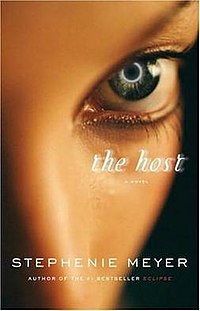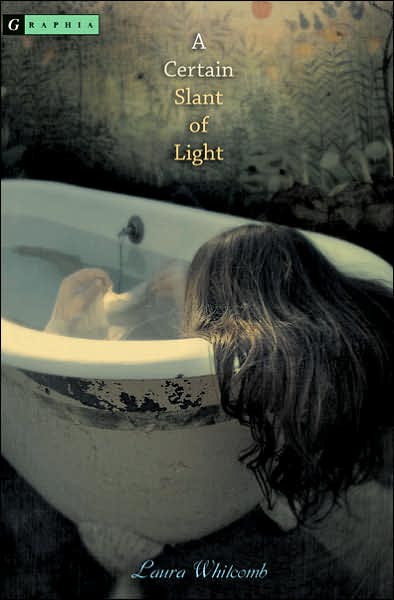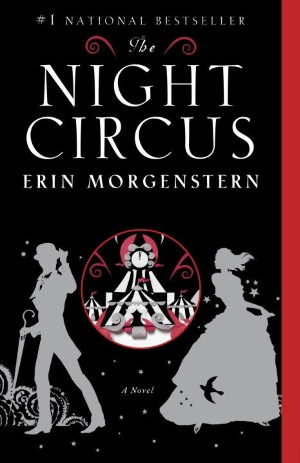Anyway, in addition to reading the obvious Edgar Allan Poe collection and Jane Eyre, we also took a look at the less familiar Rebecca by Daphne du Maurier and Henry James's The Turn of the Screw. So, when I saw a quote from The Turn of the Screw in Adele Griffin's Tighter, I had very high hopes for the book as a whole. Unfortunately, this book simply can not hold up to it's predecessors.
 Now, before we even begin, you can get all the jokes about the books title out of the way. If you missed the twist of words there, I'm happy for you and I commend your maturity. It certainly is not the most blatant of sexual innuendos, but I still got funny looks and a few chuckles from people when I told them what I was reading. Because of this, I thought the selection of this title, on the author's part, was a little unfortunate. Although I see the slight play on Henry James's title (when you turn a screw, it gets tighter), I didn't find the title otherwise relevant to the story. Griffin might have saved herself from a few immature laughs had she come up with a different title.
Now, before we even begin, you can get all the jokes about the books title out of the way. If you missed the twist of words there, I'm happy for you and I commend your maturity. It certainly is not the most blatant of sexual innuendos, but I still got funny looks and a few chuckles from people when I told them what I was reading. Because of this, I thought the selection of this title, on the author's part, was a little unfortunate. Although I see the slight play on Henry James's title (when you turn a screw, it gets tighter), I didn't find the title otherwise relevant to the story. Griffin might have saved herself from a few immature laughs had she come up with a different title.Moving on to the story itself, I didn't find it very mature either. This does fall into the Young Adult genre, so I feel I should cut it some slack, but I really wasn't that impressed with the characters or the relationships between them. Besides a few complications caused by the "haunting," this was the same old teen summer romance story I've read before--except without much of a romance either. About halfway through the book they introduce a love interest for the the main character, Jamie, that's honestly just a distraction. But I can't really argue that Griffin should have taken it out because then the whole story would just be Jamie's whining, trying to act cool, and underwhelming ghost encounters.
The mystery of the haunting wasn't even that good because you know immediately who it is and why they're haunting the place, and honestly, it's old news. Like the author simply took Turn of the Screw and rewrote it for a modern audience. Now, I'll admit, there are some merits to revamping an old story. #1, it introduces the old story, Turn of the Screw, to a new, in this case younger, audience--which is perhaps one of only two good things I could say about Griffin's story line (the other I'll mention in just a bit). I just think she could have made a little more of an effort and tied the whole thing a little tighter.
Another problem I had with this is that because it's kind of a rewrite, in general it read to me more like writing exercise--I was actually assigned a similar one for that class I mentioned above. We had to take one of the stories we'd read and modernize it to show that we grasped the themes of the story and the concept of what made it "haunted". We could change the story drastically, in fact we were encouraged too, we just had to keep in mind the driving principles of the original. Unfortunately, I think Griffin would have gotten an F on that assignment because all she really did was add modern technology and a few modern themes. The story, otherwise, was unoriginal. And though, from experience, I know it's enjoyable and worthwhile to do that type of exercise, for practice writing on your own, I wouldn't personally publish a story like that (though now, considering that Griffin's made money off of hers, I'm thinking maybe I should).
Back to the other merit of this story, though. Although in general I was bored with this story, I guess it wasn't particularly awful. One of the things that actually saved it for me was the ending. And I'm warning you now, SPOILER ALERT: if you're going to read the book, stop reading this post now, because I can't really tell you what I liked about the ending without telling you the ending. So, in the end, you find out that the whole ghost experience was actually Jamie's episodes of undiagnosed mental illness. Now I don't know if I should have been--I may just be a dummy--but I was actually surprised by this turn of events. I think I was just expecting some sort of ghost encounter--though I should have known better, considering many of those Jane Eyre type stories have a logical and/or madness driven explanation for the "haunting". Whether I'm a gullible fool or not, it was my surprise over this explanation that redeemed the story, at least partially, for me. I like when I encounter something unexpected.
Unfortunately, she didn't even pull of the ending without a hitch. Though the rest of the book was slow, almost too slow, the finale just suddenly falls together--and not in a good way. It seemed completely out of nowhere when the other characters start treating Jamie like she's crazy. No one has seemed to question her sanity before--not even will a confused look or a comment and then all of a sudden they're laughing at her and shunning her. Forget surprised, I was just totally taken off gaurd. Once it all played out I liked it much better and it almost made up for the fact that it just randomly came out of left field. But I thought it was worth mentioning that that part didn't exactly mesh.
Does the ending save Tighter from the box? No. This is one I have no qualms tossing. Yes the ending was unexpected, but the rest of it was completely within the realms of expected. And yes the ending redeemed the story slightly, but Griffin shouldn't have put herself in a position where she needed to be redeemed at all. So my final verdict is that this one goes in the box.












